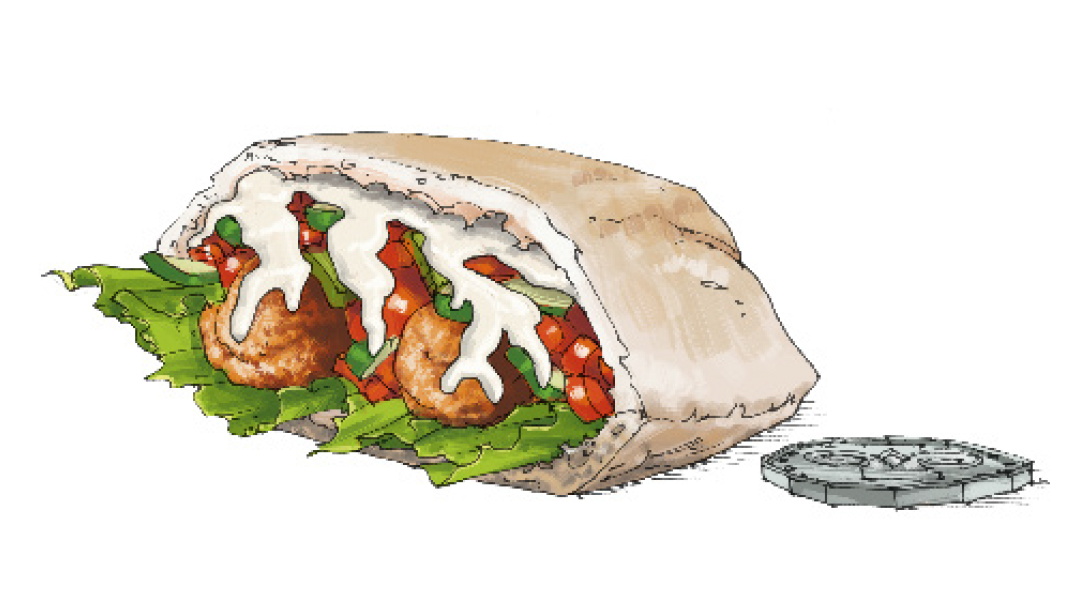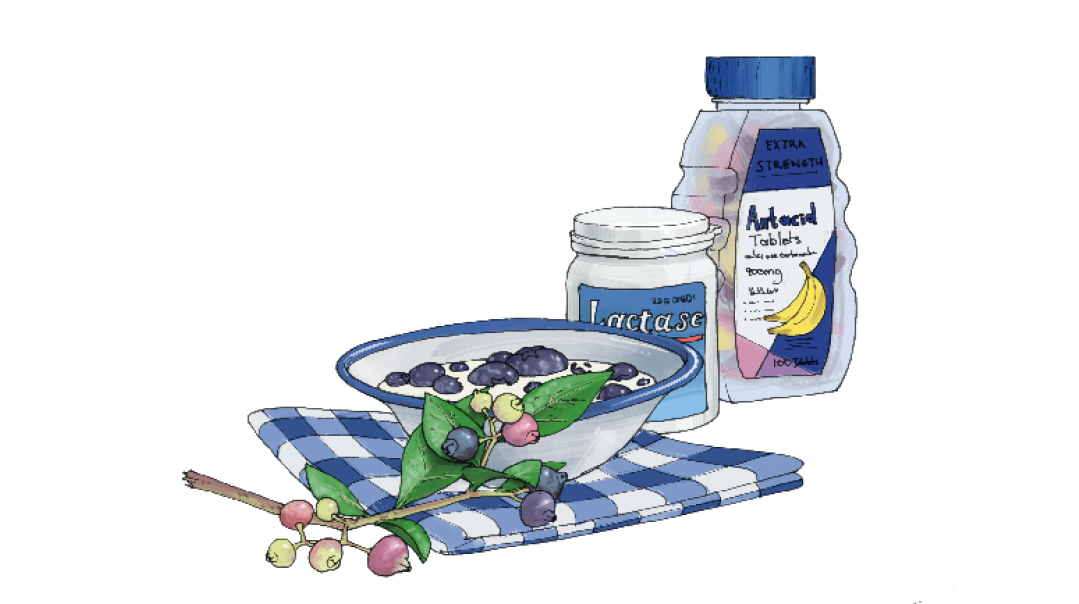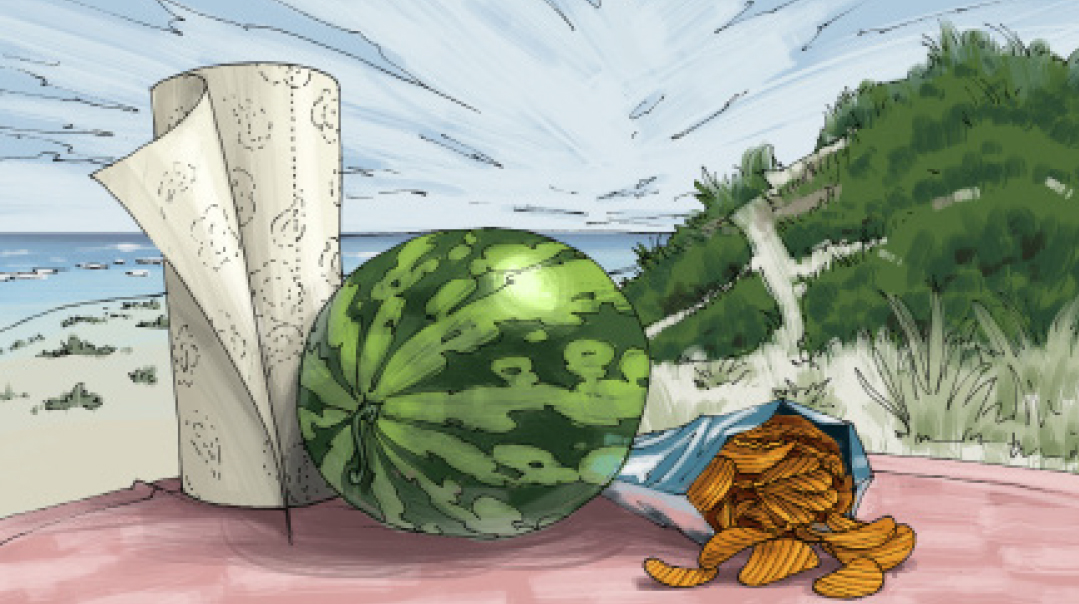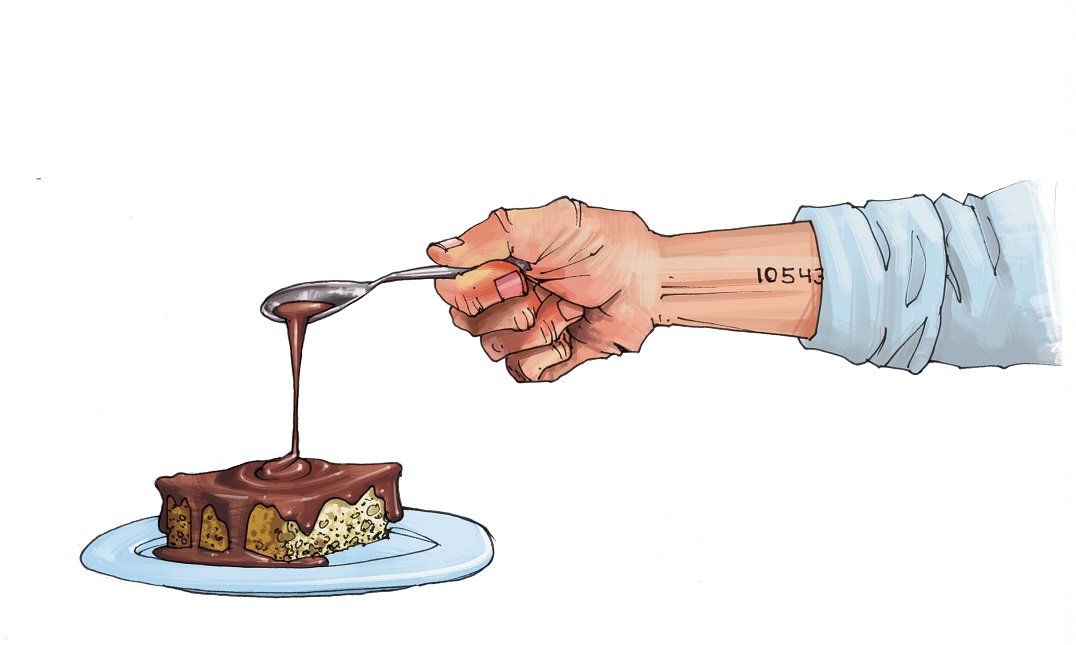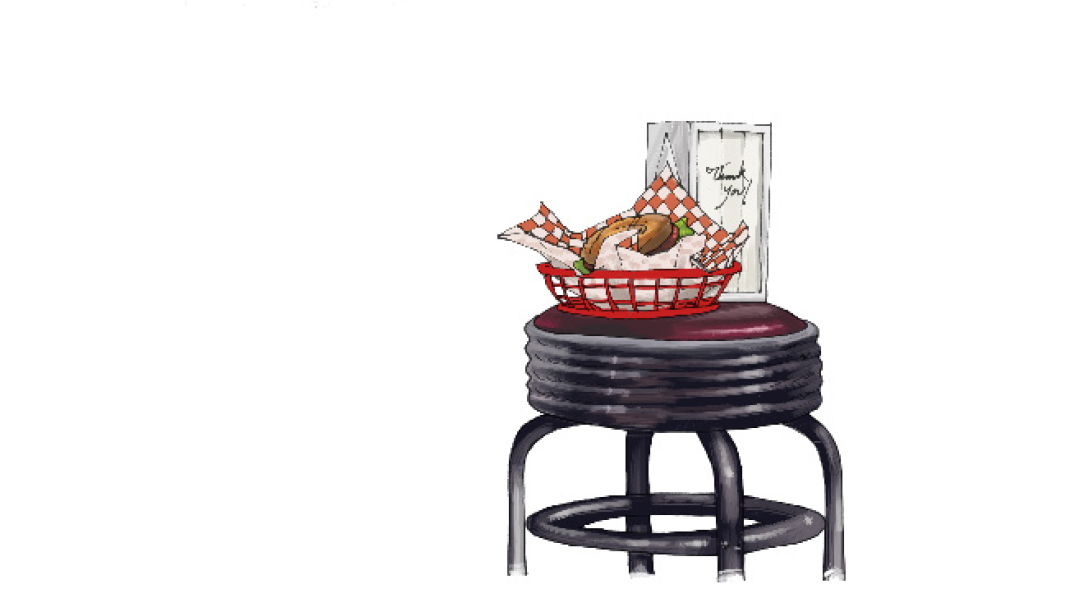Slices of Life, Tastes of Nostalgia

Table for Two
by Libby Rubinstein
Only if I look strange, American girl that I am, coming for stuffed peppers and “blintches” and mashed potatoes with tzimmes
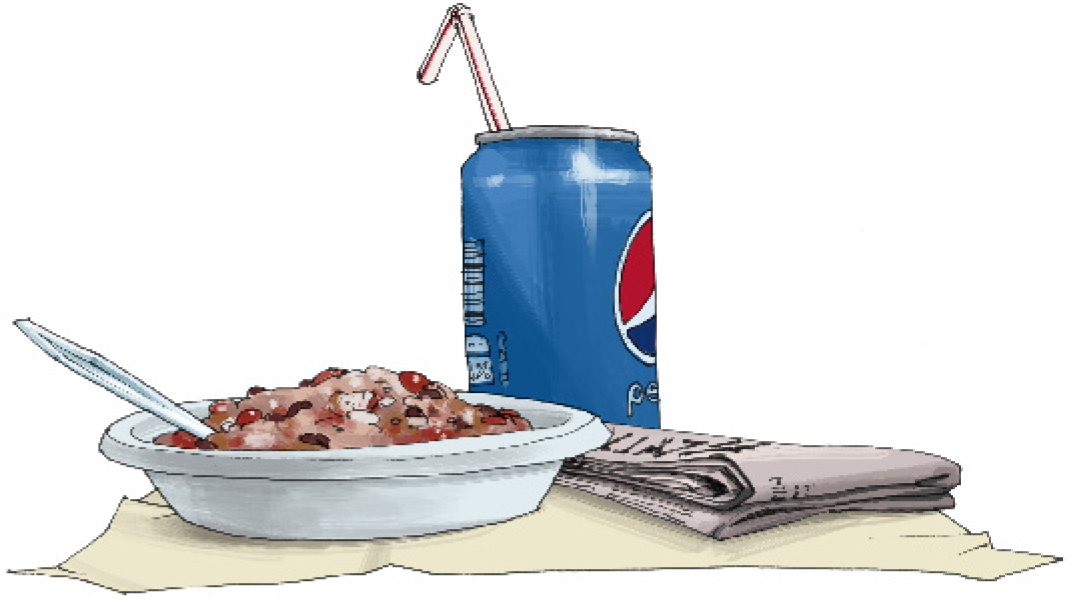
If I left my house at seven, I could get to Koritz ahead of my husband and order before he got there. He would slide in after second seder and gratefully bend over his soup while I would look around, taking in the sights and sounds of the post-seven o’clock crowd at this Geulah eatery. There were the usual American yeshivah bochurim, jackets slung over their arms as they asked for the standard schnitzel with two sides. Sometimes there was a flat-hatted Yerushalmi, playing with his beard as he selected something more exotic — a piece of moussaka, liver and onions, maybe some meat roulada if he was feeling indulgent. You could expect to encounter the middle-aged couple visiting from the US — the young ones didn’t come to Koritz — pulling out their American Yiddish as they pointed to the chicken mit kartofel. And then there was the other breed, the steady fixtures in the store, slower walking, slower moving, there for their dose of cholent, Hamodia, and Pepsi.
For the record, Coca-Cola has a fine, upstanding hechsher, and graces fine, upstanding tables in Yerushalayim. But it isn’t Badatz, and this eatery is. That alone might tell you what else this place is, and also what it isn’t.
I never have to worry if I look good enough to be seen. Only if I look strange, American girl that I am, coming for stuffed peppers and “blintches” and mashed potatoes with tzimmes.
Maybe I’m a gilgul of a girl from Cracow, or Chernowitz, or Lemberg. Or maybe I just grew up with good Jewish cooking, and I appreciate food that is clean, wholesome, and made with respect, both for the food and for the people eating it. A piece of chicken is recognizably a piece of chicken. The soup leaves no neon rim around your bowl. There is no parched-throat feeling four hours later, like you get from Chinese takeout. At Koritz, nothing tastes like it’s collided with a tanker full of soup mix, or soy sauce, or chili matok.
There is always soap and paper towels in the bathroom, which I’ve learned not to take for granted. You can get plastic cutlery if you don’t want to use real, but the simple stainless flatware looks clean enough. There is care in what they do, pride in how they do it. They look happy to serve us, gallantly setting our microwaved plates on the paper placemats.
If one is willing to forego the greasy favorites, it might even qualify as a healthy meal. There are plenty of choices behind the glass display; brown rice alongside white, grilled chicken instead of golden schnitzel. I can get a real salad almost the way my mother made it, lettuce, cucumbers and tomatoes with a little oil and lemon, wilted but proud. Not the fancy greens of a café, but also not the commercially churned vegetable heap in the falafel store.
It helps that there’s no dessert, although there might be ice cream upon request. Sometimes there’s compote or watermelon in the fridge at the side, small glass bowls of leftovers from a bris they hosted that morning, the logistics of which the American mind cannot calculate. Sitting at one of the tables in this little establishment, you wonder where they fit a stroller, let alone a crowd.
New stores pop up around Geulah offering trendy sandwiches, wraps, and grilled pargiot al ha’esh. But we come back here again and again, schmooze with the man behind the counter, tell him what a one-of-a-kind place he has. He smiles. I hope the bochurim appreciate it, too.
We bring our kids during summer bein hazmanim, our big outing to the restaurant which is so not a restaurant. They run up and down the steps of the split-level seating area and bang on the fish tank in between bites of schnitzel. We all come home full and happy.
We have warm memories of Koritz. On my visit to Yerushalayim last year, food was the last item on my list. I did not have time to spare for eating out when there were holy places and special people and only five days. But I made it to Koritz — I had to — and brought the grease-covered Styrofoam back to my apartment to enjoy in solitude.
For a few sweet minutes, time stood still.
Libby Rubinstein lived in Eretz Yisrael for close to 20 years before moving abroad with her family. She is forever grateful for those years.
(Originally featured in Mishpacha, Issue 830)
Oops! We could not locate your form.







